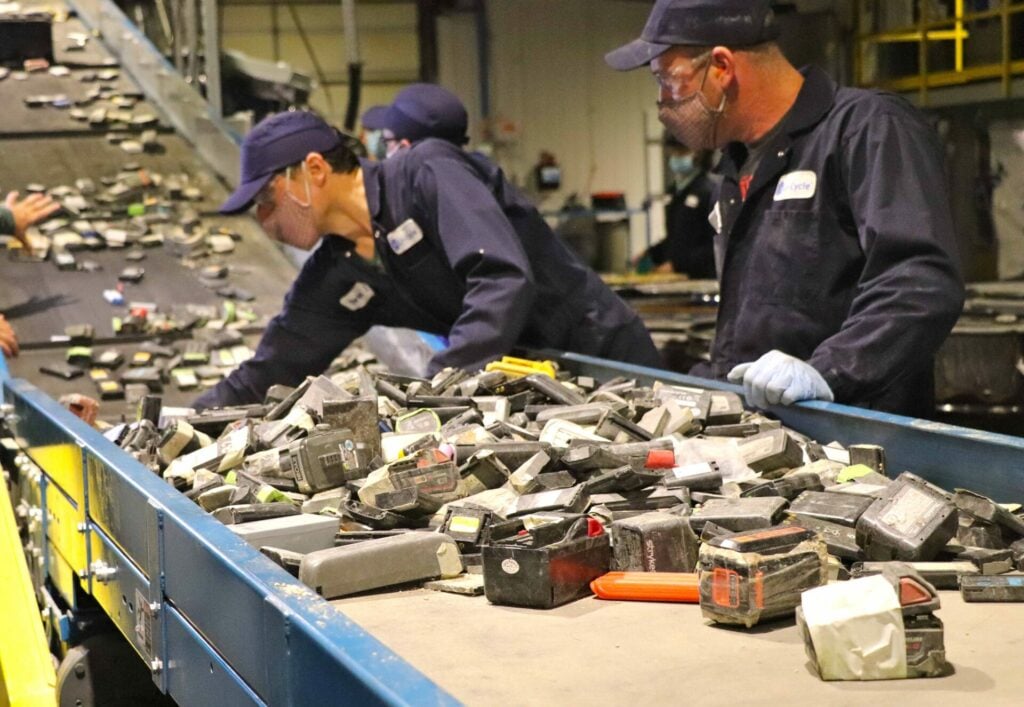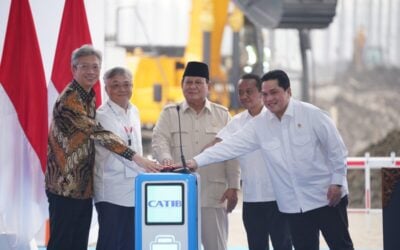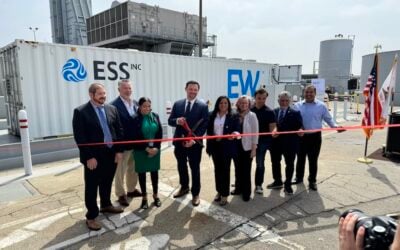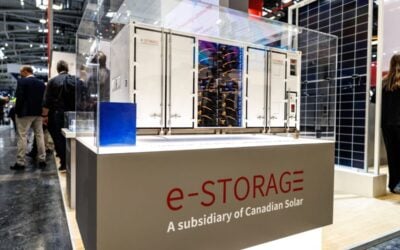
Lithium-ion battery recycling specialist Li-Cycle has seen its revenues rise as its business has commercialised, although the cost of expansion to meet expected future demand remains high.
The Canada-headquartered company has claimed its two-step process for battery recycling can recover and process 95% of the materials they contain, including lithium, manganese, cobalt and nickel.
Enjoy 12 months of exclusive analysis
- Regular insight and analysis of the industry’s biggest developments
- In-depth interviews with the industry’s leading figures
- Annual digital subscription to the PV Tech Power journal
- Discounts on Solar Media’s portfolio of events, in-person and virtual
Li-Cycle’s shares listed on the New York Stock Exchange (NYSE) in August last year after merger with listed special purpose acquisition company (SPAC) Peridot Acquisition Corporation.
Li-Cycle noted in financial disclosures ahead of the transaction that it only began commercial operations during 2020, as it rolls out a network of so-called ‘Hub & Spoke’ facilities, strategically located near to demand and production centres for the growing lithium battery economy.
Its financial year runs to the end of October and from US$64,000 of revenues in the 12 months to 31 October 2019, by the same period the following year this had grown to just over a million dollars. Meanwhile that full-year performance was equalled in the first quarter of its 2021 financial year, ending 31 January 2021.
In the first quarter of its fiscal year, revenues were US$3.8 million, a 277% increase year-on-year. Production of ‘black mass’ intermediary materials recovered from spent batteries at Li-Cycle’s existing Spoke facilities in Ontario and Upstate New York increased more than 190% over the year before.
Two further Spokes will come online during this year — in Alabama and Arizona — while a Hub in Rochester, New York, is expected to come online in 2023. The Spokes shred charged, used batteries from different types of applications and create the inert, black mass product, Hub facilities will then hydrometallurgically process cathode and anode materials into battery grade end-products for reuse.
Each of the two new Spokes will be capable of processing up to 10,000 tonnes of lithium battery input annually, while the Hub should be able to process 35,000 tonnes of black mass — equivalent to 18GWh of Li-ion batteries each year to produce 42,000 to 48,000 tonnes of nickel sulphate, 7,500 to 8,500 tonnes of lithium carbonate and between 6,500 to 7,500 tonnes of cobalt sulphate.
Cost of expansion and growth to meet recycling demand
The company has some big deals in place with off-takers and feedstock providers and in December announced that LG Chem and LG Energy Solution had agreed to make an equity investment into its business as well as a 10-year deal to buy nickel from its facilities.
Li-Cycle said in its financial results announcement that those commercial agreements are expected to be concluded in April, having extended the timeframe for negotiating contracts past an earlier date set in mid-March.
Li-Cycle’s SPAC merger raised more than half a billion dollars, including a private investment in public equity (PIPE) commitment from investors and the company said it ended Q1 FY2022 with roughly US$522 million cash on hand.
It also recorded US$28.5 million net profit for the quarter, as opposed to a net loss of about US$6.8 million in Q1 FY2021.
Ahead of its listing, the company had said that expanding its commercial scale and reach was likely to be an expensive endeavour but pointed to a huge addressable market opportunity. In the first quarter of FY2022, that related to operating expenses reaching US$22.6 million, a big jump from US$7.2 million in Q1 FY2021.
Personnel costs have grown, as have professional fees and administrative costs related to operating as a public company, while at the same time increased production of black mass meant higher running and materials costs.
A quarterly adjusted EBITDA loss of US$16.9 million was reported, considerably higher than US$3.7 million in the previous year’s same period, which again Li-Cycle said was largely in relation to higher staffing and network development costs as the company grew and expanded its business.
Li-Cycle, which has told Energy-Storage.news it views the stationary energy storage system (ESS) industry as an important off-take as well as input sector, claimed it has a strong balance sheet position to be able to fund its pipeline of Spokes and Hubs. It is advancing further Spoke projects in Norway and in Germany which it aims to be able to commission during 2023.
The company said it will provide additional detail during this financial year on the approach it will take to financing and that it is “evaluating multiple capital sources, including but not limited to debt-based financing alternatives” as well as optimising the cost of capital and its future flexibility.
Recycling as an integral aspect of the battery value chain is becoming an important consideration for its stakeholders, from politicians to end-customers and the many different industries and segments involved.
Another company, Ascend Elements, is opening the largest single-site lithium battery recycling operation in North America in August this year and recently announced a deal to take manufacturing scrap from two gigafactories being built near its facility in the state of Georgia by SK.
Mercedes-Benz also just announced that its forthcoming battery gigafactory in Germany will include a pilot recycling plant, which is being developed by a newly-formed subsidiary of the luxury automaker, called LICULAR.
The European market could have added impetus for sustainability, with the European Union set to introduce regulations for batteries including minimum recycled content and carbon footprint labelling requirements over the next few years.






